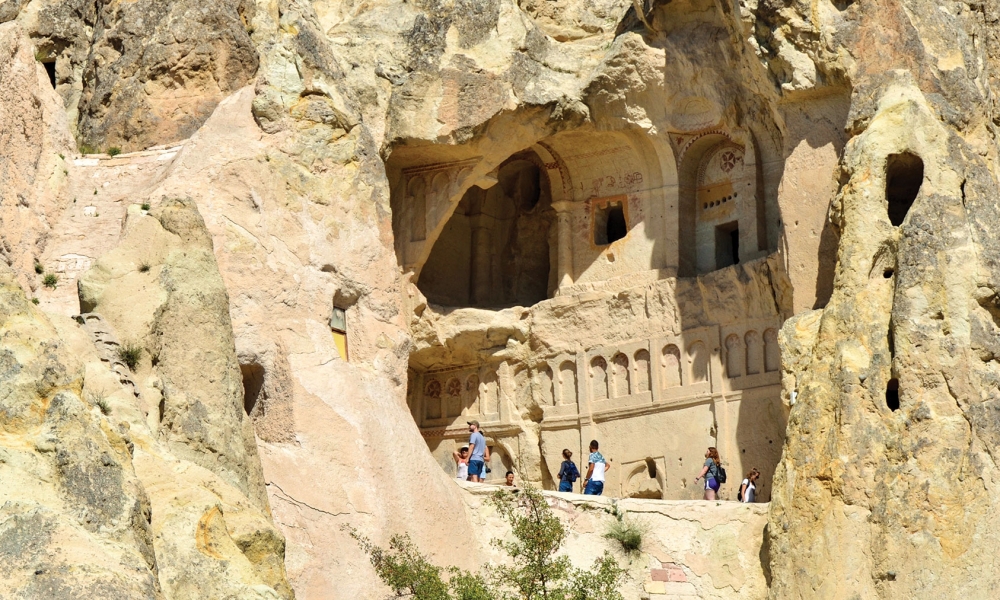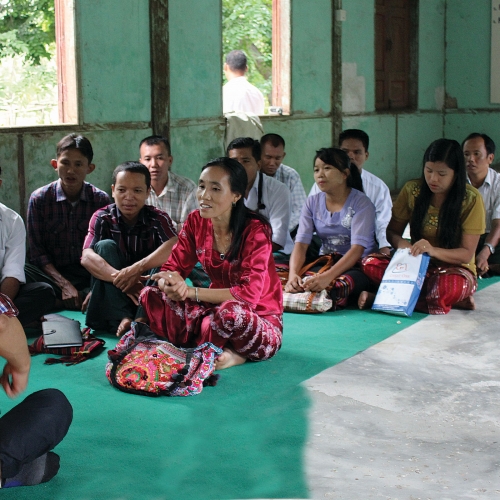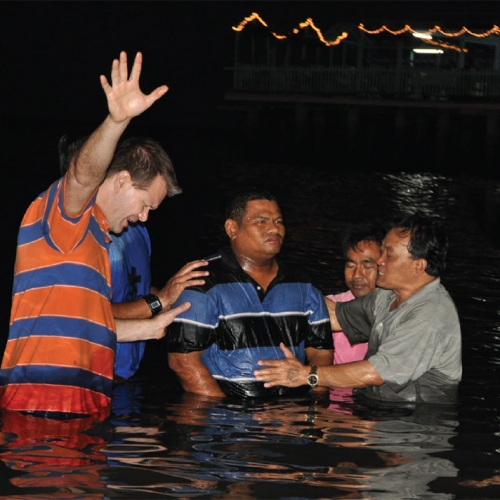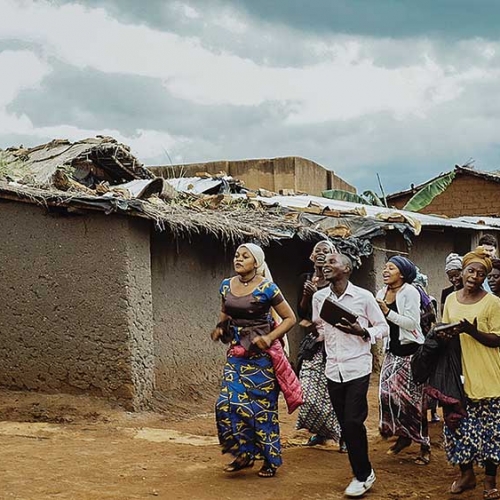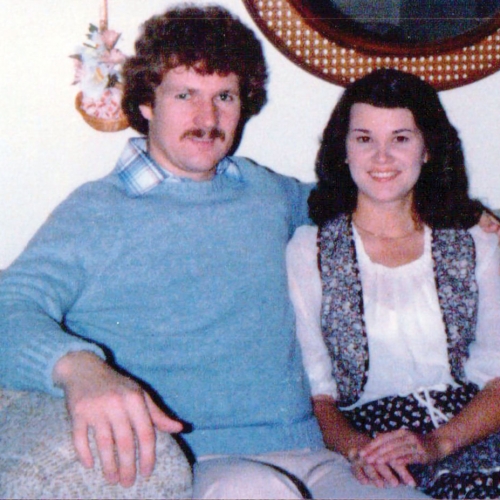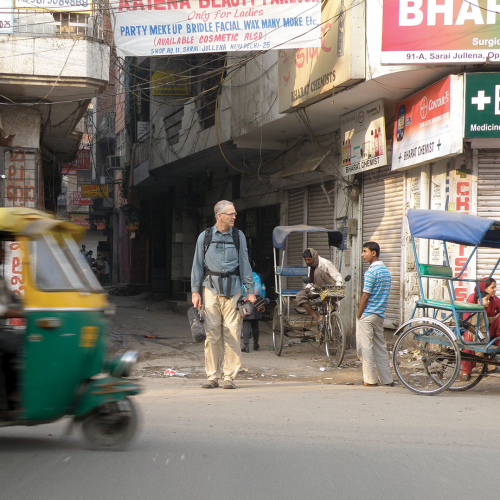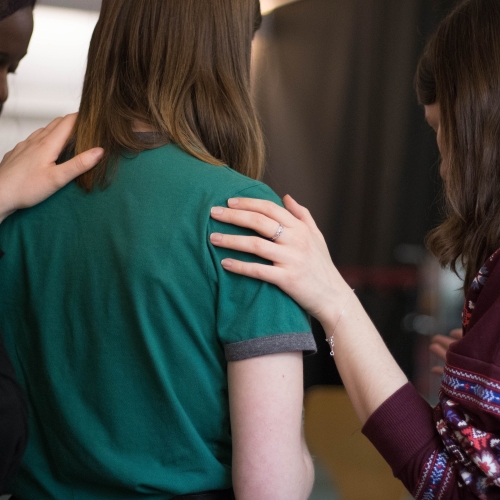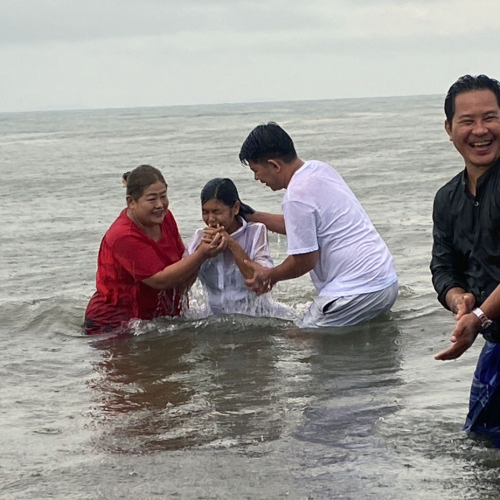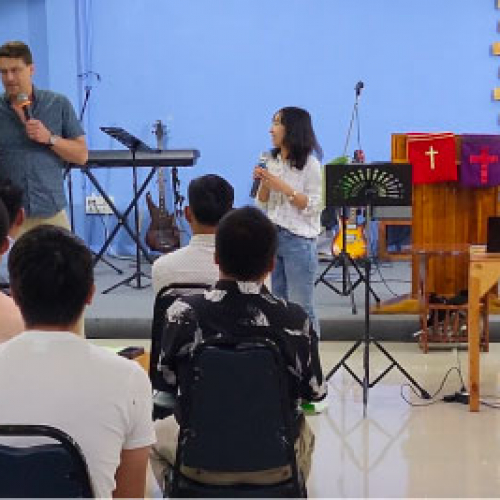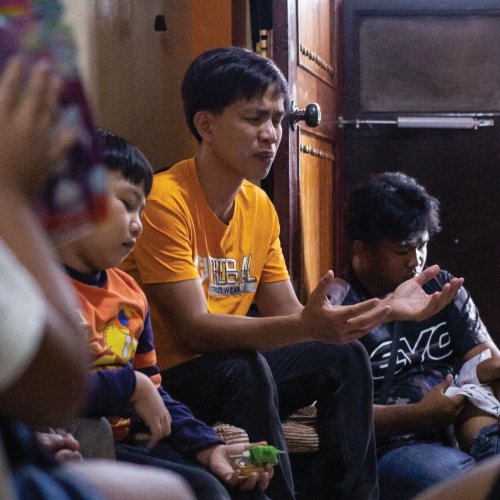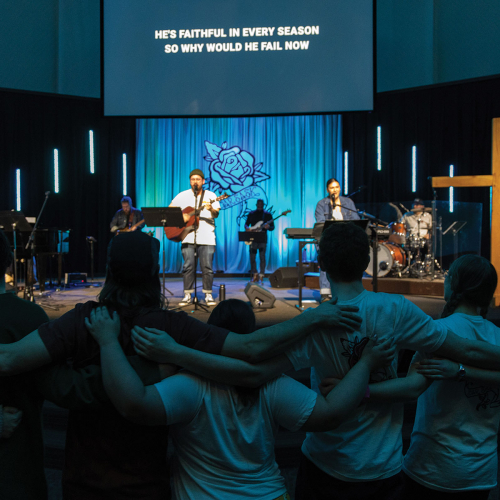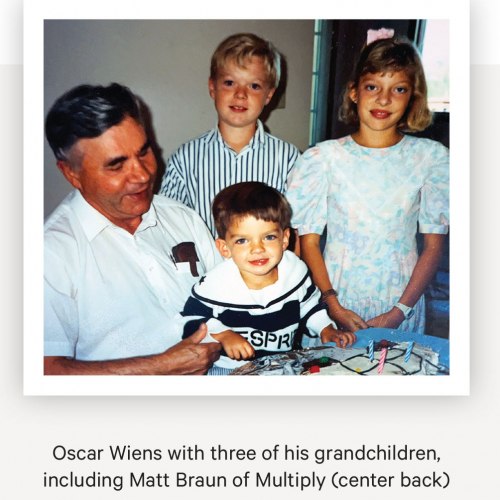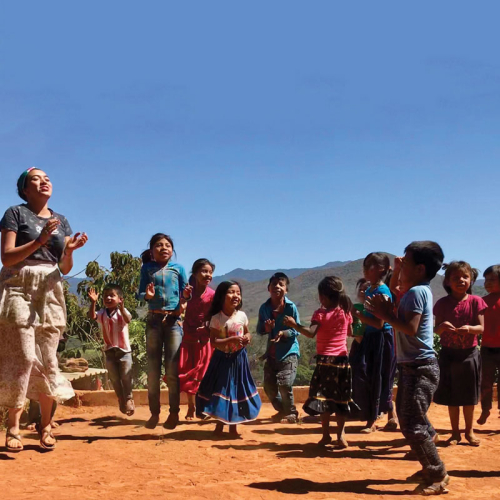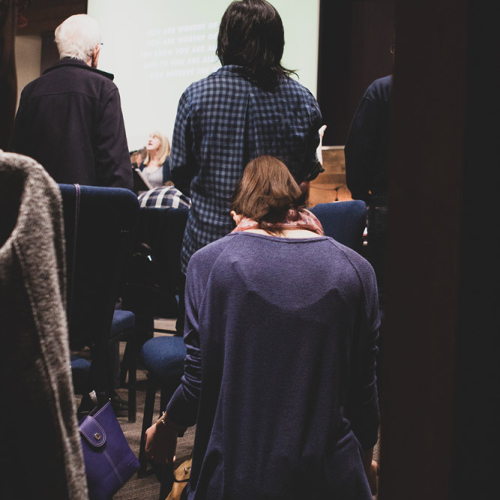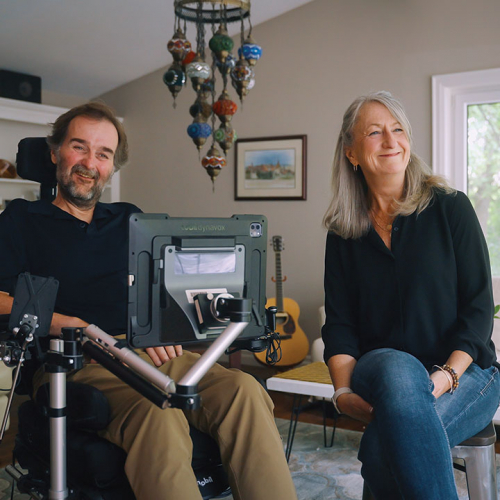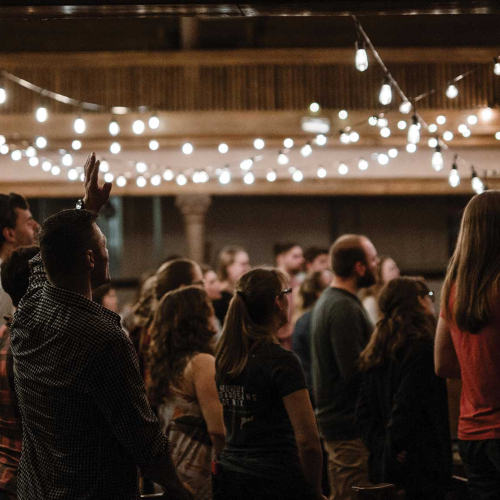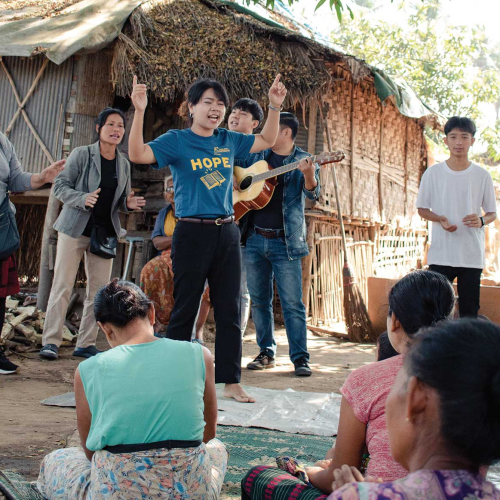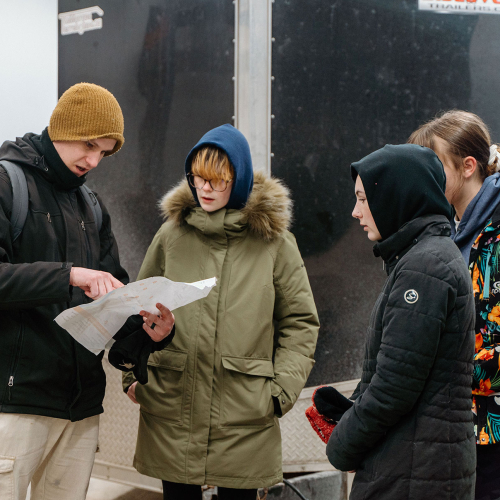In 1895, Peter and Martha Wedel of Kansas sensed God’s call to missionary service in the Cameroons. After preparation and discernment, they were sent by MB churches through a German Baptist mission agency. Due to failing health, Martha left the field early, but Peter stayed. Within two years, he too fell ill and left Africa—he passed away on his way home and was buried at sea. Undaunted, another couple, Heinrich and Maria Enns from Mountain Lake, Minnesota, arrived in the Cameroons in 1896, already aware of the grave dangers. While they were departing from the railway station in Mountain Lake, the solemn crowd sang a hymn of blessing and prayed for these new workers. Heinrich’s final words to his sending church rang out, “If we do not come back, if we must die, who will replace us?” Heinrich and Maria did not return to the USA. Both were buried in Africa. However, others did step up to replace them in that generation. Heinrich’s question continues to ring out in our generation, “Who will replace us?”
Today, within our global MB family, we celebrate new missionaries that are being sent out, not only from North America, but from our partner conferences in Brazil, Colombia, Congo, Japan, and across Europe. God is still calling our churches to send out new workers and to make disciples of all nations.
On a recent trip to Turkey, I visited the Cappadocian caves where I saw the remains of churches and monasteries that were built into the limestone rocks centuries ago. It was fascinating to see the legacy of faithful missionaries who spread the Gospel throughout Turkey in the first century, and to reflect on our shared missionary heritage.
The Book of Acts tells us about the first Christian messengers who began in Jerusalem and moved westward. We read about the church in Antioch where early missionaries like Paul and Barnabas were called by God and sent throughout the region. Their teams traveled from place to place, preaching the Gospel and planting churches. On return trips, they visited the young churches, bringing instruction and encouragement, yet they were also constrained to expand the Good News to the unreached.
During this sweeping account of Gospel expansion, there is an intriguing story in Acts 16 that begs for our attention. It is a key turning point. As Paul and his team traveled, it says that they were “kept by the Holy Spirit” from going to Asia, and then that “the Spirit of Jesus would not allow them” to go north to Bithynia (Acts 16:6-7). As they stopped in Troas (southwest of modern Istanbul), there Paul received a vision and a call, “Come over and help us!” In the dream was a man from Macedonia, across the Aegean Sea in northern Greece (16:9).
Is there a Macedonian call for us today? On my recent trips, I heard the message loud and clear from our national partners, “Come over and help us!”
That Macedonian call was the beginning of the Gospel’s penetration into Europe. From there, in due time, Christianity would spread to Africa, Asia, North America, Latin America, and Oceania. But two times there was a “No” from God, before the “Go.” Paul and his team had to consider things carefully, but eventually they concluded together that God was calling them to go. They obeyed the call, and the rest is history. Human faithfulness led to God’s fruitfulness!
Is there a Macedonian call for us today? I would say, absolutely. On my recent trips to Portugal, Turkey, and Kyrgyzstan, I heard the message loud and clear from our national partners, “Come over and help us!” True, over the decades and centuries of missions, some things have changed. The West is no longer the sending base that it was, though faithful workers are still being sent from our churches in North America and Europe. In our world today, mission is truly from everywhere to everywhere.
As we engage this missionary call today, we often hear a similar message from our national partners: “Please come help us disciple and train young believers and churches.” Where the church is established, our role is to complement and collaborate. Where the church is not yet, among the thousands of unreached people groups, we must still go to the last, the least, and the lost. As a mission agency, Multiply continues to be committed to evangelism, discipleship, church planting, leadership training, mission capacity building, and community development.
While we are faced with an unprecedented number of open doors around the world, we are also faced with a great need for new workers. Though we see new passion in our churches, and we are engaging new strategies, we are also aware of an aging missionary force and a general decline in long-term workers.
In this way, last year was bittersweet for me. On the one hand, we joyfully celebrated the faithful service of some long-term workers, yet it was hard to see them move on. Richard and Hazel Funk recently returned to Canada after more than thirty years of service in Austria. Otto and Marjorie Ekk also announced that they will be leaving Portugal after three decades of service there. In November, Multiply said goodbye to Saji Oommen, who has taken on a new role with a child support ministry after twenty-one years of serving with us in India, Turkey, and the USA. Likewise, in December, we saw Andy Owen transition from twenty-one years in Thailand to pastoral ministry in Wichita, Kansas. We also celebrated the lives of departed missionaries such as Ruth Friesen (Afghanistan, Sierra Leone, and Pakistan), George Baier (Congo and Germany), and Helene Franz (Paraguay).
We thank God for all these faithful workers, yet I ask you, who will replace them?
I am reminded that we belong to a vibrant missionary tradition. In the past, God called, and yet he still calls today. God directed, and yet he still directs. Many have faithfully served, yet many more are still needed. There were unreached peoples then, and there are still more today. How will we face this challenge? Is God calling you?
In this edition of Witness, you will be inspired to consider how the Macedonian call is still being heard today. You will hear from national partners like Hakan, Regional Team Leaders like Emerson and Nasser, and long-term workers like Louise who are all affirming the ongoing need for dynamic and diverse international partnerships. May God’s voice be heard in our hearts.
